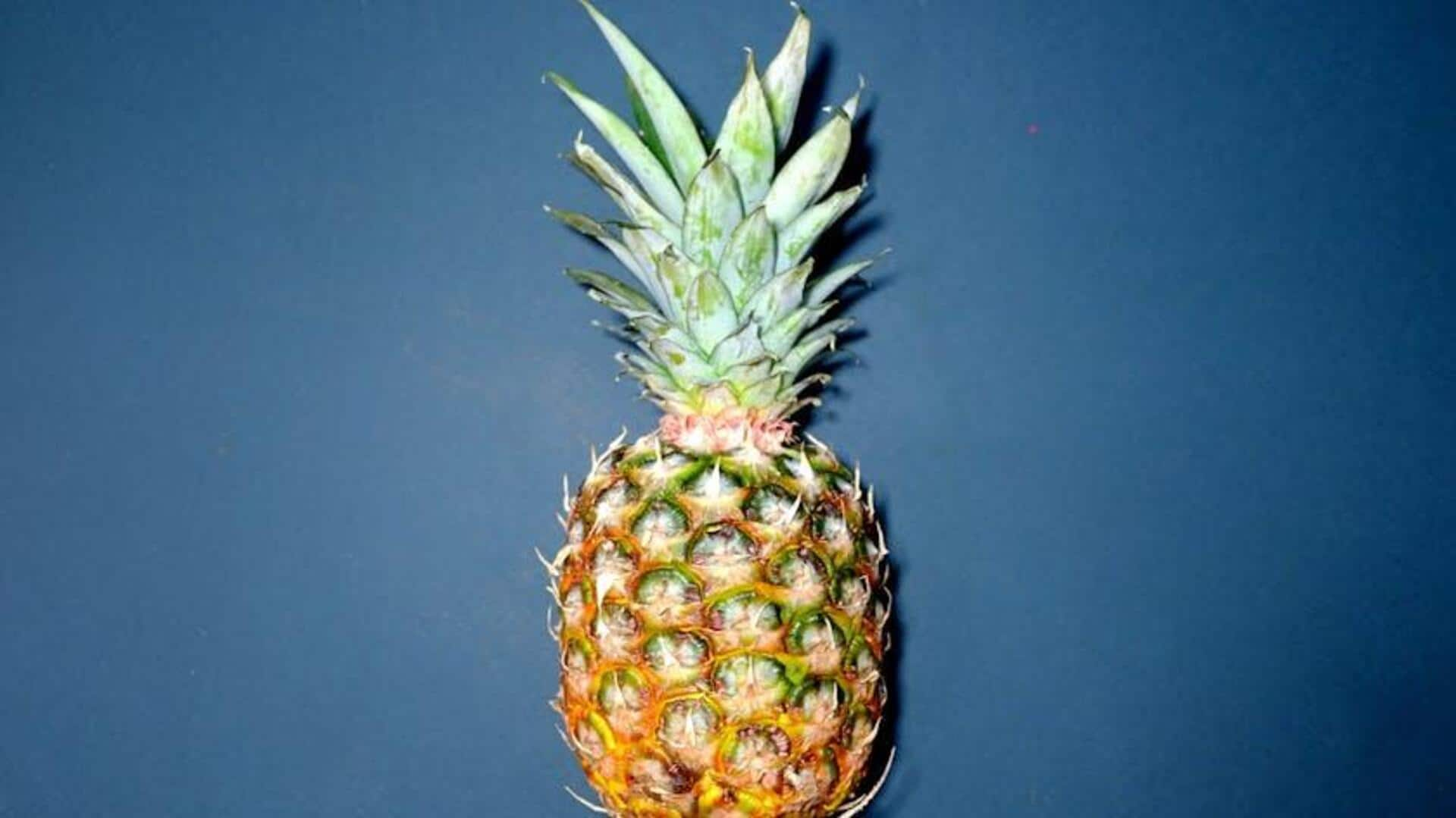
Pineapple v/s pomegranate: Which is more nutritious?
What's the story
Pineapple and pomegranate are two of the most popular fruits, both of which are packed with nutrients. While both fruits offer a range of health benefits, they differ in nutritional profiles and what they have to offer. Knowing these differences can help you make better dietary choices. Here's a look at the nutrition of pineapple and pomegranate, highlighting their unique benefits.
#1
Vitamin C content comparison
Pineapples are famous for their high vitamin C content, with one cup serving over 100% of the daily recommended intake. Vitamin C is important for boosting the immune system and skin health. Pomegranates also offer vitamin C but in lesser amounts than pineapples. One cup of pomegranate seeds gives you about 15% of the daily recommended intake. Both fruits can contribute to your vitamin C needs, but pineapples lead the way.
#2
Antioxidant properties explored
Pomegranates are famous for their high antioxidant content, especially punicalagins, which are great for fighting oxidative stress. These antioxidants may help reduce inflammation and protect heart health. Pineapples also have antioxidants, including bromelain, which may help with digestion and reduce swelling. While both fruits provide antioxidant benefits, pomegranates are particularly noted for their potent antioxidant properties.
#3
Fiber content analysis
Fiber is essential for digestive health, and both pineapples and pomegranates provide a good amount of it. A cup of pineapple chunks has about two point three grams of fiber, while a similar serving of pomegranate seeds has about seven grams. The higher fiber content in pomegranates may help with regular bowel movements and keep you feeling full longer than pineapples.
#4
Caloric value considerations
When it comes to caloric value, pineapples are slightly lower in calories than pomegranates. A cup of pineapple chunks has roughly 82 calories, while a cup of pomegranate seeds has around 144 calories. If you're watching your calorie intake but want to enjoy something sweet, you can opt for pineapples without compromising on taste or nutrition.
Tip 1
Mineral content insights
Both fruits provide essential minerals such as potassium and magnesium, which are important for heart health and muscle function. Pineapples have more potassium than pomegranates, with one cup offering around 180 milligrams compared to about 116 milligrams in pomegranates per cup serving size. However, pomegranates provide more magnesium per serving size than pineapples do.